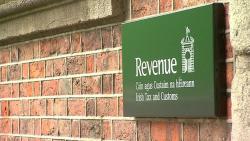
KomSec Limited will be closed from 19.12.2020 to 04.01.2021 inclusive.
Everyone in KomSec Limited wishes you all a very Happy Christmas, and hope you have a contented time with your family and friends.


KomSec Limited will be closed from 19.12.2020 to 04.01.2021 inclusive.
Everyone in KomSec Limited wishes you all a very Happy Christmas, and hope you have a contented time with your family and friends.

CRO SIGNING CHANGES
One of the potentially exciting effects of the CRO moving to a new digital platform later this month is that it will no longer be necessary to file original signature pages for Company Incorporations or Annual Returns.
Company Incorporations
The ability to replace the necessity to file original or wet signature pages when incorporating a company is particularly welcome as it should help to substantially speed up the overall incorporation process.
Annual Returns
The changes for filing Annual Returns will be twofold.
There will be a lot to get used to for all users of the CRO but, if the new system lives up to expectations then the short term pain of getting to grips with all the changes should be well worthwhile.


The Companies Registration Office (CRO) is finally implementing its long-anticipated digital transformation this month. Basically, the current digital platform used by the CRO will cease to operate on 11.12.2020, and there will be no crossover once the new digital platform is launched on 16.12.2020.
The key dates relating to the digital transformation process are as follows.
* 7th December Final date for receipt of original signature pages for any forms electronically filed under
the current system
* 10th December Final date for receipt of electronically signed forms relating to Charges
* 11th December CRO will begin transition to new system
* 16th December CRO will launch new system
It will not be possible to access, search or electronically file documents in the CRO whilst the transition is put into effect between 11th to 16th December.


We have become so used to hearing about Charity Trustees who have gone bad and lost the run of themselves but, in this case, depending on one’s viewpoint the only ones losing the run of themselves is either the Charities Regulator or the Revenue Commissioners or both.
Paul Murphy of RTÉ Investigates issued a fascinating update on 21.02.2020 entitled “Charities Regulator excoriated after its Trustee Nominees sued by Revenue”. When reading this article you must suspend any thoughts about “sense” “logic” “appreciation” with “weird” “illogical” and “what on earth”.
In brief, the Kerry based Animal Heaven Animal Rescue (AHAR) incurred substantial tax liabilities which ultimately led to the closure of the Charity.
o January 2017 – RTÉ Investigates exposed misleading fundraising practices, unreceipted cash expenditure and a lack of financial controls.
o March 2019 – the Charity was wound up following an audit which had commenced over 18 months before the Charities Regulator nominated four Trustees.
o April 2019 – the Revenue initiated High Court proceedings against the Trustees nominated by the Charities Regulator.
AHAR is now wound up but, had tax liabilities of €203,000 of which €140,000 has been paid with a commitment to repay the balance of €60,000 in October 2020. Given the tax liabilities are being repaid, and (based on RTÉ Investigates reports) the Revenue have stated its intention to drop these proceedings if the outstanding tax liability is discharged in full why is the Revenue taking proceedings against the current Trustees?
Concerns over the level of “poor governance” at the Charity prompted the Charities Regulator to start nominating Trustees in order to “Implement proper governance and controls of the charity”
The Trustees (nominated by the Charities Regulator) did not receive any remuneration or expenses for their work. They are however receiving legal bills as they have to defend themselves against prosecution by the Revenue which must be costing each of them somewhere between €12k to €15k each.
The Charities Regulator expressed “sympathy” for the Trustees nominated by his office to help sort out CRA issues with the Charity.
One thing for sure the very people who were put in to help rescue the situation were the ones who are being been hammered. Why would anyone want to be involved with a Charity at any level based on this type of scenario where people were doing the right thing for the right reasons and still lose!

The deadline for filing Benficial Ownership details in the Central Beneficial Ownership Register is the 22nd of November, 2019. KomSec would advise clients not to leave registration until the last minute as a rush of registrations could cause a system overload in the Companies Registration Office (which is handling filings on behalf of the Registrar of Beneficial Owernship). It should also be remembered that the 2019 legislation increased the sanctions substantially from those provided for in the 2016 legislation. A company who breaches the Regulations may now be liable to a class A fine (currently up to €5,000) or, on indictment, a fine not exceeding €500,000. In addition to these fines, custodial sentences of up to 12 months can be imposed. You have been warned!
Further details can be obtained by contacting KomSec or accessing the Central Register website at https://rbo.gov.ie/


If you cast your mind back to before we all dug into Mince Pies and Christmas pudding, you might recall the hullabaloo concerning registering beneficial owner details of practically every company in Ireland on the Register of Beneficial Ownership before an end of November deadline.
While companies were by and large aware of their obligations it has been my experience that Charities are not as aware that they too must Register and even if they are aware the first question I hear is …. “but who are the ‘Beneficial Owners’ of our Charity?”. This blog will try and answer that question……….
‘Control’ is the key as under Beneficial Ownership rules this determines who must register. In your standard limited liability company, it is generally the case that whoever holds over 25% of the shares in the company is considered to ‘control’ it and must register their details. Most charities however are companies limited by guarantees (CLG’s) and don’t have shares. As such you have to look at its members as in general they are entitled to exercise, through their right to vote at general meetings, some ‘control’ over the company. Then it is simply a question of numbers!
If there are 3 or fewer members in a Charity CLG, those members are likely to meet the definition of “control” (because each member has greater than 25% of the voting rights) and their details must be placed on the Register of Beneficial Ownership.
If there are 4 or more members in a Charity CLG (which is typically the case in most charities), no one member has over 25% of the voting rights and so they do not qualify as a beneficial owner. In this case, the details of the “senior managing officials” (i.e. its Directors and any Chief Executive Officer) must be placed on the Register of Beneficial Ownership.
As you would expect, my easy numbers rule is not the case for every single charity and there can be exceptions (e.g. the constitution of the Charity prescribes ‘control’ in a particular way) but by and an large the members ‘rule’ applies to the vast majority of charities and is an easy way of identifying who must register.
As always, if you have any questions on this blog please contact myself or one of my colleagues.